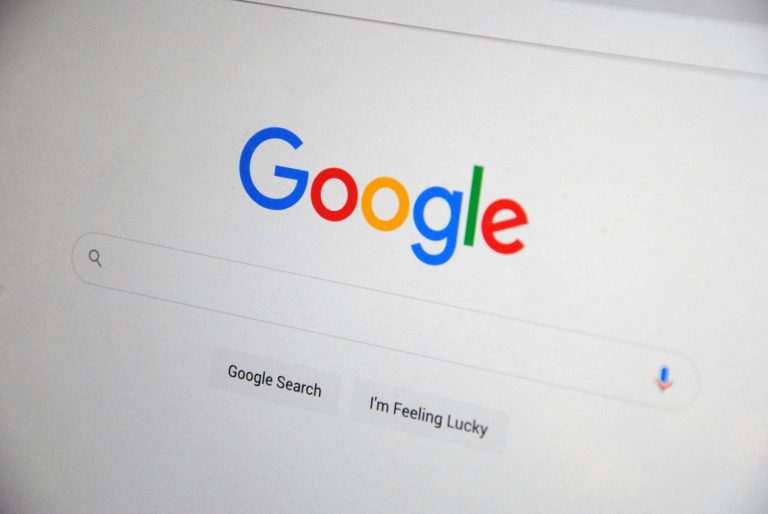
How to check for AI-generated content
Concerned that you’ve solicited human-written content but received an alternative by artificial intelligence (AI) instead? While Google doesn’t expressly penalise AI-generated content, it does value
I’ve written quite recently about the state of Government advertising during the last year of lockdown and specifically about whether their advertising meets the Legal, Decent, Honest and Truthful ASA guidelines. This was driven, in part, by the apparent lack of adherence to clause 7.2 of the Non Broadcast code which states that “Marketing communications by central or local government, as distinct from those concerning party policy, are subject to the Code.”
This is crucial, as it covers any and all coronavirus advertising and anything to do with the temporary legislation introduced by the Government to enforce lockdown.
Yesterday, we saw a twist in the tale and it’s driven by an apparent chasm opening up between those who oppose lockdowns and the harms they are reported to cause, and the media.
In yesterday’s news we hear that an advertisement, developed by a group know as The Recovery Campaign, has been rejected by JC Decaux, one of the biggest beneficiaries of the Government’s reported £184 million advertising spree in the last year, and separately, by Trafford Borough Council, who stated that “this would NOT be allowed as it is political and breaches our advertising policy.”
Let’s take a look at the advertisement that is causing all the trouble.
Sir Charles Walker, speaking recently on Lockdown TV said:
“People are frightened. The political class and the media and the scientists on stage have been very, very good at frightening people. We’ve had these amazing television campaigns, which basically say, you’re going to kill people if you leave your home because the government wanted to keep infection rates down and it wanted to keep deaths down. I’m afraid the legacy of that, as I said in Parliament yesterday, is going to be a very long tale of mental health problems”
From this you might think that the advertisement above is perfectly reasonable and supports the view that it’s high time we stopped promoting fear of this disease. But from an advertising point of view we need to establish that it won’t break any of the CAP/ASA rules, so we need to assess if it is Legal, Decent, Honest and Truthful. Let’s break it down.
Without the help of a specialist lawyer we may be hard pressed to assess this from a legal point of view, however if we look at this advertisement to see if any of the elements are clearly against the law, it’s hard to see where it might obviously break them. The headline calls for an end to a campaign of fear and this, potentially, could fall foul of CAP/ASA as they have already stated on 20th March 2020 in their Regulatory Approach to COVID-19 that “It means a commitment to act quickly and robustly against ads that exploit people’s health-related anxieties”. Ironically, this headline exists only because of the Government’s advertising which has, they claim, exploited health related anxieties.
The advertisement goes on to state that ‘millions now have mental health problems’ and, without substantiation, this might be challenged legally. Further, the use of the yellow box with red chevrons might well be construed as a breach of copyright, or at the very least, as passing off.
This is an interesting area and it helps to assess this by looking at it from a different viewpoint. If this advertisement is ‘indecent’, what value can we put on the Governments own ‘Look them in the eyes’ campaign which was forced on all of us during January and February of this year? Many considered that to be ‘indecent’ and if there was a straight comparison between the two, independent judges, in the cold light of day, may consider the Government advertisement to the the more ‘indecent’ of the two. Certainly the Government advertising campaign triggered a spate of complaints to CAP/ASA from those who felt it breached the guidelines. Decency always was, and remains, a subjective area but with the previous Government advertisements setting a precedent its hard to see how this advert could fail on decent grounds.
Does the advert make any claims which could be dishonest? Without substantiation, the ‘millions now have mental health problems’ claim might be considered to be dishonest, though if it were supported by evidence, and it seems that more and more of this is being made available every week (see below), it should not fall foul of this rule. Other than that, the advertisement seems fine on the honesty front.
As before, there’s just the one thing that might be considered to fall foul of this, the mental health claim but again, the production of some evidence (which shouldn’t be difficult given work already done by The Health Foundation and well cited evidence presented in the BMJ) should easily see the advertisement clear this hurdle.
So, we are back to the question of the advertisement being refused by JC Decaux and Trafford Council and it doesn’t look good for them. Their refusal to run this advertisement, particularly as both of them happily ran the government ‘Look them in the eyes’ campaign, seems to suggest double standards.
Despite claiming that they cannot run it because it is ‘political’ they are both happy to accept the Government’s advertising which is clearly and overtly political. In fact, both of them have accepted political advertising over the recent past, and likely will again as we run up to 6th May local elections, so why this should be different is unclear.
This drives to the heart of the issue, which is that it would seem, on the face of it, that we are living in an era where it is acceptable to censor viewpoints. The ‘political’ angle from both organisations refusing to carry the advertisement doesn’t stand up to scrutiny as the message on the Recovery advertisement, as we can see in the image above, is unlikely to breach CAP/ASA guidelines, so why is it being refused? What has caused organisations who would normally be happy to accept political advertising, to refuse to give a platform to an alternative viewpoint?
Is it that they don’t agree with the viewpoint? Is it that they won’t carry the advertisement for fear of reprisals? Have they been ‘persuaded’ that it is in their best interests to refuse it? Or is there some other force at play here?
At the heart of democracy is freedom of speech and within that, advertising and marketing play a huge part. Advertisers, charities and organisations place advertisements every day with the aim of communicating their message to the general public. As long as those advertisements are within the law, and meet CAP/ASA guidelines, they should be allowed to run. When you arrive at a point where advertisements meet all the legal requirements but are refused on the grounds that you don’t like the message, then democracy itself is under attack.
This point is best summed up by Evelyn Beatrice Hall, who famously wrote “I disapprove of what you say, but I will defend to the death your right to say it”. Without freedom of speech and expression, we become subjected to a single viewpoint and with it, the implicit assumption that all other viewpoints are wrong. The fight to protect us from the proliferation of online quackery and conspiracy theories that have emerged in the past year has also taken, as collateral damage, some who should be given a platform. But when the zeal to protect the truth becomes draconian and overly sensitive against anyone with a legitimate claim to ask a reasonable question, then it has crossed a line.
Advertising has a huge responsibility, as because of the regulations and checks we have in this country, it is generally accepted as believable. People trust advertising. If an advertisement is allowed to run, those seeing it generally assume that it has passed the necessary hurdles an is fit for purpose. This standard applies to every advertiser, including the Government. By allowing the Government campaigns to run, unchecked, over the past year, the industry has opened itself up to others, like Reform, insisting that it should also carry their advertising. And in a balanced and fair society this may well be the case.
That they are being refused a platform on all but the flimsiest of grounds, sets the entire Advertising Industry on course for a massive showdown and a discussion on censorship which could end very badly for all caught up in its wash.

Concerned that you’ve solicited human-written content but received an alternative by artificial intelligence (AI) instead? While Google doesn’t expressly penalise AI-generated content, it does value

At Aqueous Digital, we’ve long maintained the belief that the concept of reviewing companies is flawed, having a significant effect on the success of businesses

Searching for different ways to connect with your target audience? With curated content, you can engage key demographics that are vital for the success of

Taking no less than two weeks to complete, Google’s first core update of the year has now finished rolling out, as reported by Search Engine

It’s no secret that ever since the early 2000’s, Google has been the go-to search engine for online users across the world, but with AI

Struggling to determine how much money your construction business should be dedicating to your marketing efforts? As award-winning digital marketing experts, the Aqueous Digital team
Customer reviews showcase the level and quality of service a website provides.
Trustindex collaborates with 133 review platforms to provide website visitors easy access to all real and verified reviews in one place.
Reviews from other platforms are displayed and added to the ratings only if they are proven spam-free and meet Trustindex's guidelines.
Trustindex continuously measures the satisfaction of your customers based on evaluations. Less than 1% of the customers surveyed indicated a problem.
The website's contact information and business information has been independently verified by Trustindex.
The website is constantly checked for security issues by Trustindex.

Websites that continuously maintain a high level of customer satisfaction and comply with a high level of security protocol can obtain a Trustindex certificate. When shopping, look for Trustindex certificates and buy with confidence.
More details »
For businesses
Build trust and increase sales with Trustindex certification.
More details »